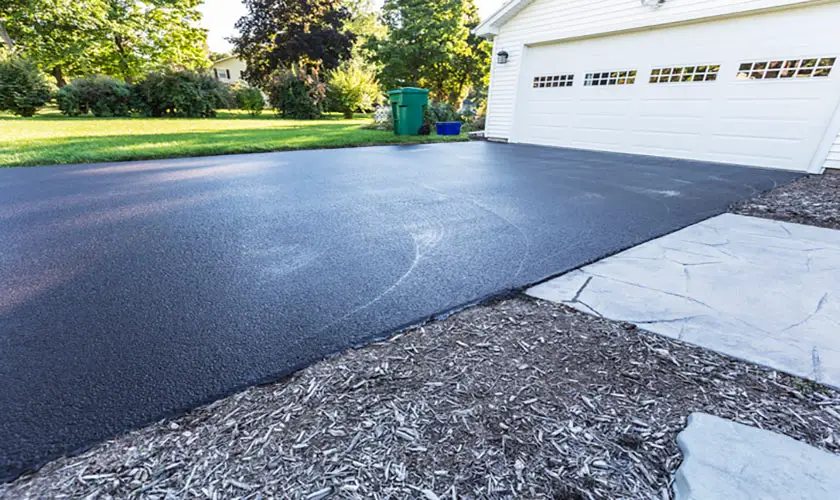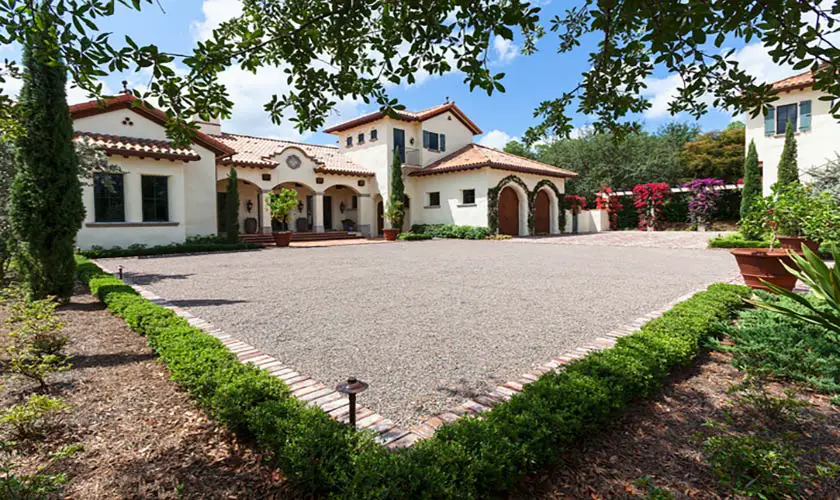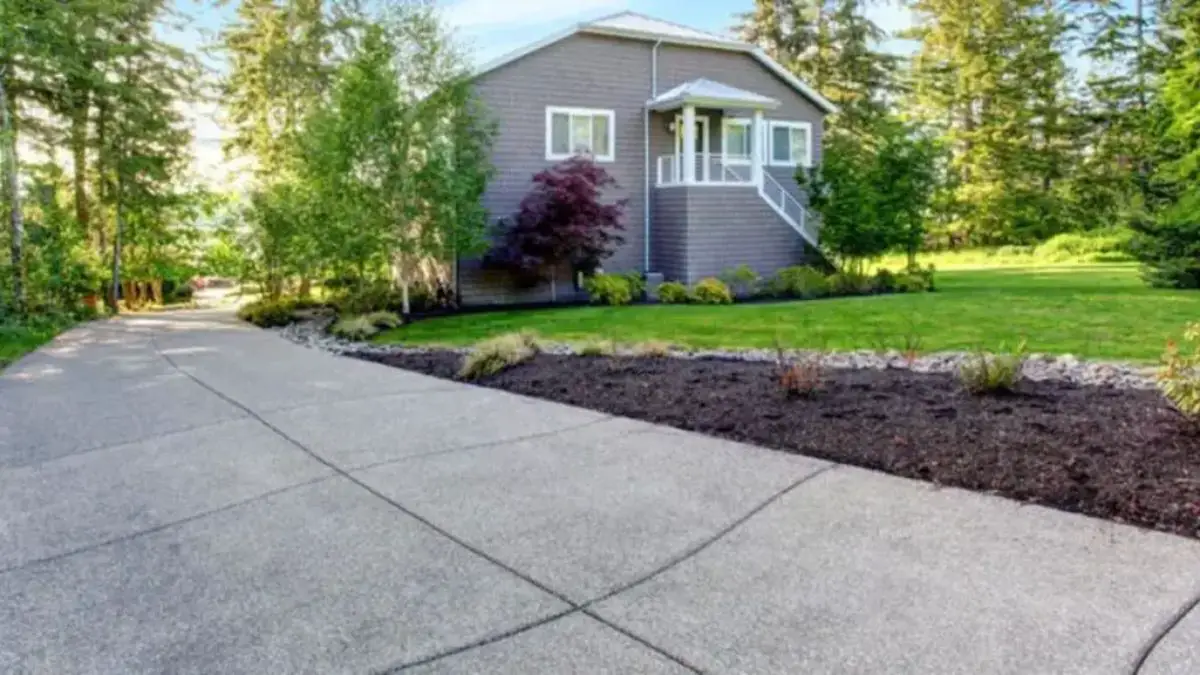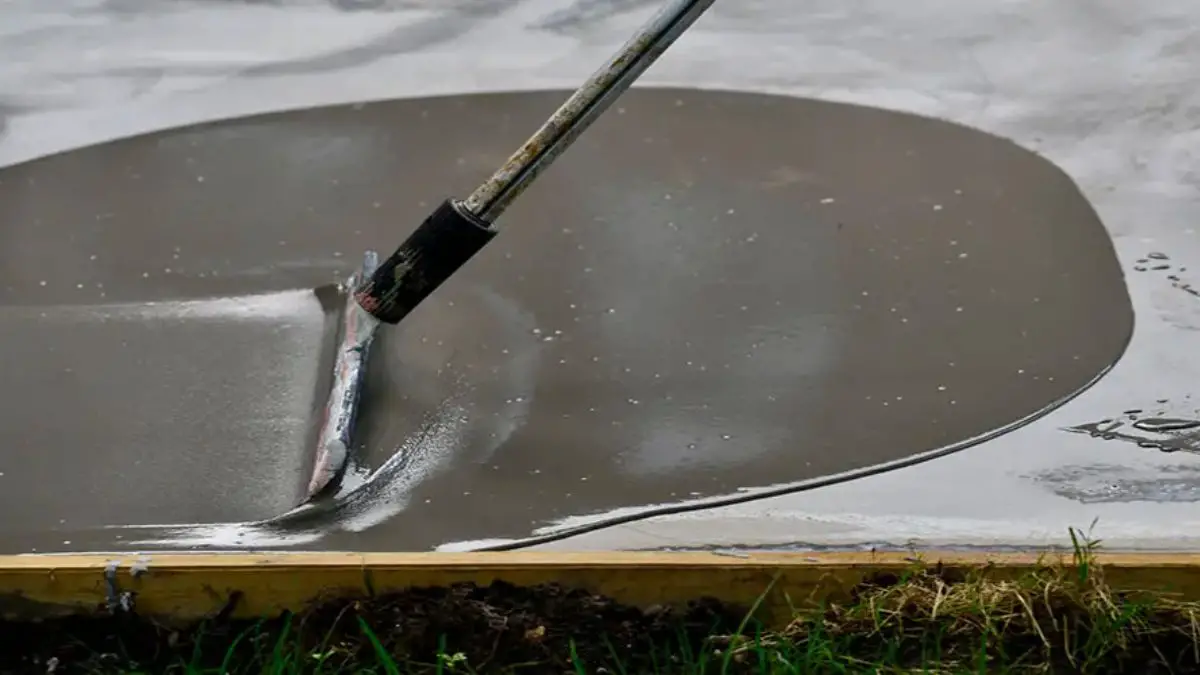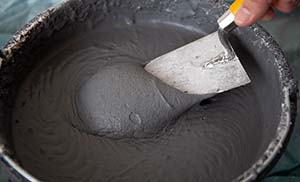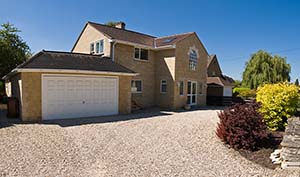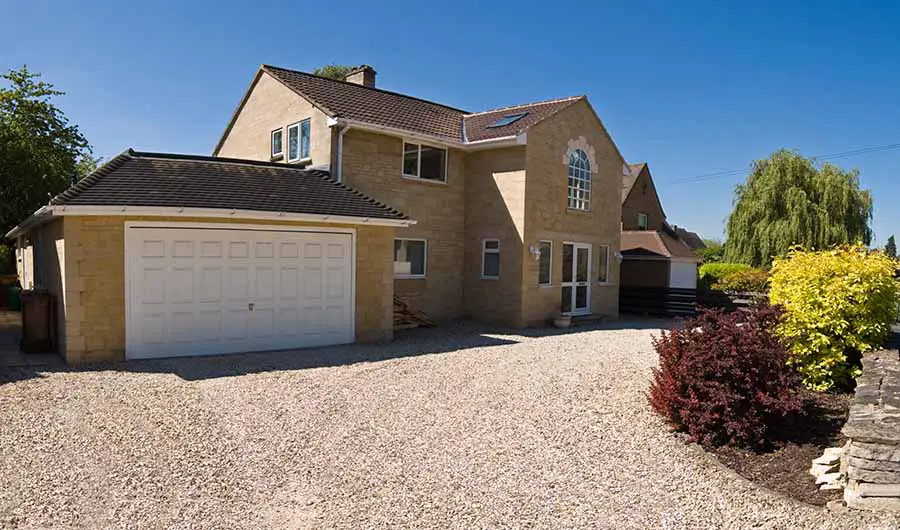
First impressions are everything. While first impressions can be wrong, they are what people remember about us. The same is true of our home. Our driveway is often the first thing people notice when they visit us. If you want to give your grave driveway a makeover and add some warmth to your home’s appearance, this article will help get you started.
Generally, you should not put gravel over concrete, especially in high-traffic areas. Gravel over concrete may look nice, but it is not a lasting and safe solution. Over time, the gravel will shift due to walking or driving over it, leaving bald spots exposed and creating tripping hazards.
If you were hoping to simply put gravel over your concrete driveway as a quick fix, all hope is not lost. Here are four ways to transform the look of your concrete.
Alternatives to Putting Gravel On Concrete
While putting gravel over concrete is not a good idea, some alternatives can give your concrete a new and improved look without creating a safety hazard.
Gravel Grid
If you want a gravel driveway, one option is a gravel grid. A gravel grid is made of heavy-duty plastic shaped like a honeycomb that keeps the gravel in place. There is still the potential for the gravel to move around, but the weight of vehicles will help pack the gravel into the grid. You can purchase gravel grids online or at your local hardware store.
Staining the Concrete
Staining the concrete will transform your old concrete into something new and exciting. Unlike paint, which only lays on the surface, stains penetrate the concrete. Staining will not hide the slight cracks and imperfections in the concrete, but it will give a rustic look to it. Staining is also more durable and will require less maintenance than painting the concrete.
Pavers
Pavers are another great way to add a rustic feel to your home. While not the easiest or cheapest option, overlaying the concrete with pavers is a great way to add personality to your home. Utilizing this option requires that the existing concrete is in good condition.
Power Washing the Concrete
A pressure washer will remove the years of accumulated grime and dirt, giving your driveway a fresh look.
If you are not a DIY enthusiast and after examining the condition of your concrete, you realize a more drastic approach is needed, it may be best to apply the adage, “Out with the old, and in with the new.”
Can You Add Pea Gravel To Concrete?
Adding pea gravel to concrete is a great option to achieve the look of rock in your driveway. The pea gravel is mixed with the concrete, but it is not until the concrete is poured and worked that the gravel is exposed. The exposed aggregate will add texture and personality to the appearance of your home. The concrete itself, however, will need a much stronger aggregate base than pea gravel.
You can create concrete by mixing cement with aggregate. Aggregate is a filer and bulking agent comprised of sand, gravel, stone, etc., making up 60-80% of the mix. When combined with water, it gives concrete its strength. Choosing the right kind of aggregate will ensure your finished product will last for many years.
There are two types of aggregate to choose from:
- Fine Aggregate – This type of aggregate is found in cement bags at your local hardware store. It is best used for mortar, plaster, general repairs, and thinner concrete slabs such as countertops. One example of fine aggregate is sand.
- Coarse Aggregate – This type of aggregate provides strength and durability to the concrete. It is best used where load-bearing capabilities are needed, such as roads and foundations. One example of coarse aggregate is gravel, although much larger sizes can be used.
While it may be tempting to buy a bag of QuickSet and some gravel and go to town on your driveway, there are some things to consider. The quality of the aggregate is essential to the quality of your concrete.
Aggregate needs to be free of dirt, silt, clay, or other superfine materials that will affect how the cement and aggregate will bind together. Improperly mixed cement will affect the look and feel of your concrete and, ultimately, its lifespan.
What Size Gravel Is Best For Concrete?
There is no one-size-fits-all gravel for concrete. Aggregate has various characteristics that affect the strength, durability, and workability of the concrete:
- Shape
- Texture
- Size
- Moisture content
- Reactivity
- Bulk weight
Deciding which aggregate to use will depend on the type of concrete you want, the weight-bearing needs of your concrete, and what is available in your area. Your local cement company will be able to help you decide which type of gravel is best to use for your concrete.
Do You Need Gravel Under Concrete?
As a general rule, gravel is needed under concrete for three reasons:
- Reduces Settlement- The ground is full of life. There are bugs; there are weeds; there are roots. It is constantly moving. Factor in the weather, and you have the perfect environment for your concrete to shift and crack. Gravel provides a protective barrier between the ground and your concrete, absorbing those movements.
- Ensures Proper Drainage – Concrete is porous. If the absorbed water has nowhere to go, it will pool underneath the concrete, eventually eroding the soil. A base layer of gravel will enable the water to continue moving, thus preventing the soil from eroding and ultimately affecting your concrete.
- Adds More Volume To The Concrete – More volume means less air, which means your concrete will be stronger and less likely to shrink and crack. It also means less water is needed.
Concrete can be poured directly on the soil, especially if you have packed down the dirt. As you can see, though, the benefits of having a protective base layer of gravel are significant. Laying a good solid foundation is essential to ensuring the longevity of your driveway – and will save you money in the long run.
Final Thoughts
A concrete driveway can do much to enhance the appearance of your home and add to its value. Hiring someone to do the work may seem overwhelming, but it doesn’t have to be. Your local contractor will walk you through the process and give you the driveway you want. You will also have the satisfaction of knowing that you did the job right. It is an investment that you will not regret.


